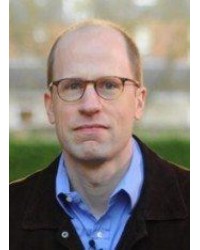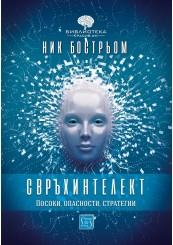Nick Bostrom

Nick Bostrom (born 10 March 1973) is a Swedish philosopher at the University of Oxford known for his work on existential risk, the anthropic principle, human enhancement ethics, superintelligence risks, and the reversal test. In 2011, he founded the Oxford Martin Programme on the Impacts of Future Technology, and he is currently the founding director of the Future of Humanity Institute at Oxford University.
Bostrom is the author of over 200 publications, including Superintelligence: Paths, Dangers, Strategies (2014), a New York Times bestseller and Anthropic Bias: Observation Selection Effects in Science and Philosophy (2002). In 2009 and 2015, he was included in Foreign Policy's Top 100 Global Thinkers list. Bostrom is best known for arguing that, although there are potentially great benefits from artificial intelligence, it may pose a catastrophic risk to humanity if the problems of control and alignment are not solved before artificial general intelligence is developed. His work on superintelligence and his concern for its existential risk to humanity over the coming century have brought both Elon Musk and Bill Gates to similar thinking.
Born as Niklas Boström in 1973 in Helsingborg, Sweden, he disliked school at a young age, and he ended up spending his last year of high school learning from home. He sought to educate himself in a wide variety of disciplines, including anthropology, art, literature, and science. Despite what has been called a "serious mien", he once did some turns on London's stand-up comedy circuit.
He holds a B.A. in philosophy, mathematics, logic and artificial intelligence from the University of Gothenburg and master's degrees in philosophy and physics, and computational neuroscience from Stockholm University and King's College London, respectively. In 2000, he was awarded a PhD in philosophy from the London School of Economics. He held a teaching position at Yale University (2000–2002), and he was a British Academy Postdoctoral Fellow at the University of Oxford (2002–2005).
€14.32 (28.00 лв.) €17.90 (35.00 лв.) Ex Tax: €13.13 (25.69 лв.)


